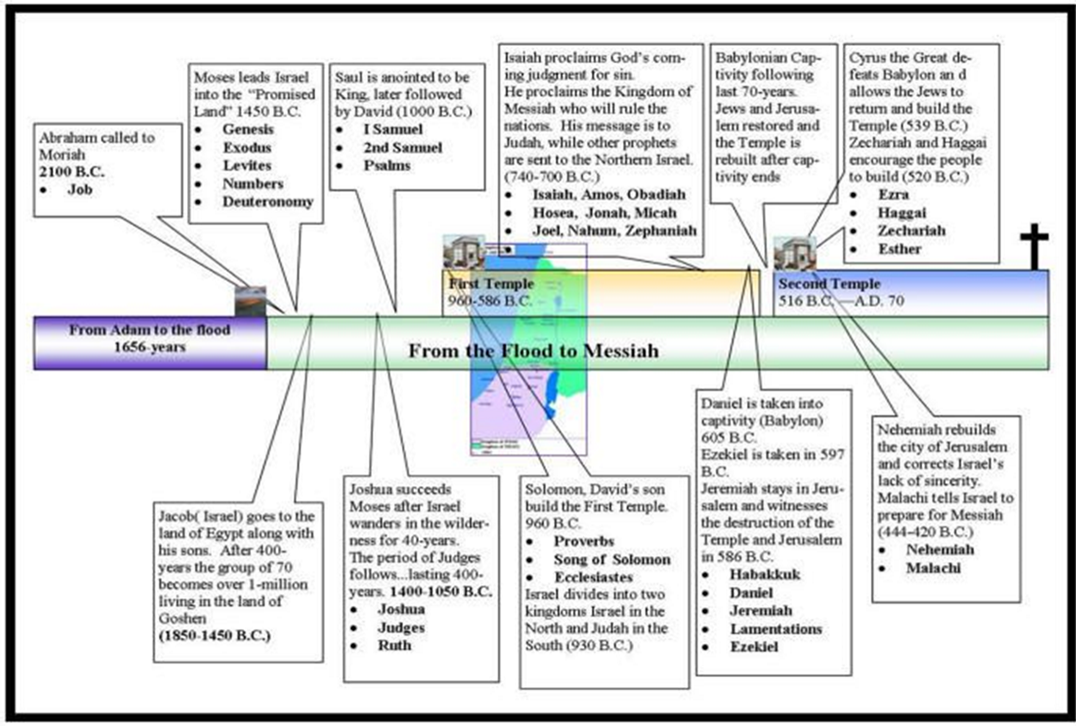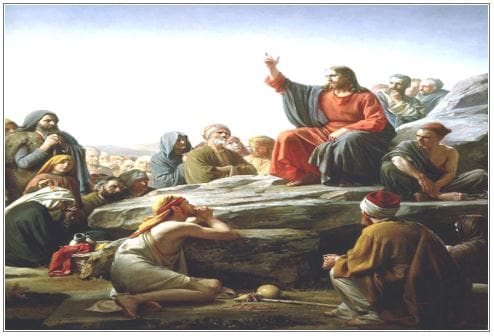Old Testament Reading: Genesis 13:1-18 – New Testament Reading: Galatians 5:13-26
Behold The King
“Life in the Kingdom of God” # 5
Matthew 5:5
In His Sermon on the Mount, Jesus outlined nine characteristics of those who would be allowed into His kingdom. However, He made it clear that these nine qualities:
- Are not humanly achievable – there is nothing a sinner can do to achieve them. Sinful man can practice them, but he will never achieve them by his own will.
- Are only divinely obtainable – they are the outward evidence of the inward work of the grace of God through those who die to themselves and allow Christ to live His life through them.
- Are progressive in their manifestation – the ability to express each attitude comes from the spiritual maturity of the one before.
- Are entirely contrary to the ways and wisdom of the world – to even desire them requires a complete transformation.
- “Blessed are the poor in spirit” – the essential evidence of being “born again” – our spiritual eyes are opened to see the Kingdom of God for what it is, our sin from God’s perspective, therefore our need for a Savior, and Jesus as the Savior we need.
- “Blessed are those who mourn” – the evidence of being poor in spirit. Once we see our sin from God’s perspective, we cannot help but mourn over our “sins,” and our sin of unbelief in Him. When God sees us truly mourning over our sin, He sends the Comforter.
- “Blessed are the meek” – the evidence of having mourned. Once we have entered the Kingdom of God and seen His righteousness compared to our unrighteousness, we cannot help but humble ourselves before God and manifest that humility before others.
When the people heard Jesus use these terms to describe those who would enter the Kingdom of God, they were shocked because it was so different from what they had expected to hear.
- Jesus told them rather than boasting about their spiritual fervor, they should mourn over their spiritual failure, for there is no place in God’s kingdom for spiritual pride.
- Jesus said, God’s kingdom will be filled with those who are so poor in spirit and so humbled by their sin, they know that apart from God’s grace, they would be lost forever.
1. The Haughtiness of Religion–
In addition to the disciples, there were different kinds of people gathered to hear from Jesus:
- Those who had traveled for days, bringing their sick to be healed.
- The Sadducees – religious liberals who questioned Jesus.
- The Pharisees – religious conservatives who doubted Jesus.
- The Zealots – political activists who wanted a military kingdom.
- The Essenes – separatists who had forsaken Judaism and had established their communes in the desert.
- For 700 years, the Jews had been oppressed by ungodly nations, ruled by pagan tyrants, and controlled by corrupt leaders. Their relatives had died without seeing the promise God made to Abraham’s seed, and their sadness had turned to madness.
- They despised the Romans, and lived in the hope that God would send the Messiah to defeat the Romans, set them free from their oppression, and restore Israel to its former glory.
- When Jesus did not become the Messiah they had expected Him to be, they rejected Him as the Messiah He was sent to be, and in so doing, they revealed the “haughtiness of their heart” for God.
|
“As Americans, we may not understand the anger of the Jews against the Romans, because for 245 years, we have not lived under an oppressive regime. But as Christians, we are beginning to understand their anger, because of the genocide of Christians around the world, and the rise of persecution of Christians in America, and that anger is increasing.”
|
The Five Stages of Christian Persecution:
- Identification – stereotyping Christians as those who “cling to their guns and religions to explain their frustrations.”
- Vilification – portraying Christians as uneducated inhibitors of “progress” – intolerant, hateful, bigoted.
- Marginalization – removing the role of Christians’ influence in the development of society and restricting any further influence of Christians in the future of society, including all levels of education and all areas of legislation.
- Criminalization – establishing laws and “rules” governing the behavior of Christians, limiting their freedom of expression.
- Persecution – intimidating those Christians and churches that will not follow the above laws and rules; threatening them with lawsuits, fines, and imprisonment for the slightest violation.
2. The Humbleness of Righteousness –
Because of our ineffectiveness in preserving the culture from corruption, rather than fighting against it, Christian need to prepare live in it, without being corrupted by it.
- Jesus said Christians are the “salt” of the earth and the “light” of the world. But He also said if the salt lost its power to preserve, and if the light lost its ability to illuminate, they were ineffective in their assignment – hence the weakness of today’s church.
- Proverbs 14:34 – “Righteousness exalts a nation” – we need to elect the most righteous candidates to public office. However, “sin is a disgrace to any people.” – Christians cannot expect public leaders to uphold a standard of righteousness they aren’t willing to live by themselves.
- Ephesians 4:1-3 – Christians should be willing to forgive the offenses of others without the desire for retaliation or revenge.
- James 1:20 – “The anger of man does not produce the righteousness of God.”
- Christians must become more concerned about the righteousness of Christ than they are about “their rights,” or “being right”!
Examples of “Meekness” in the Scriptures –
- Genesis 13 – Abraham had the right of first choice to the division of land between him and Lot. However, he gave Lot first choice so there would be “no strife” between them.
- Abraham was more concerned about the righteousness of God than his rights to the land.
- Genesis 37 – Joseph could have refused to give his brothers food when they were hungry, but he chose to do what was right.
- Joseph was more concerned about the righteousness of God than his right to revenge what his brothers had done to him.
- 2nd Samuel 24 – David had every right to take Saul’s life when he had the chance, for it would have been in self-defense.
- David was more concerned about defending the name of God than he was about defending himself.
3. The Holiness of Heaven –
We tend to think of heaven as a palace with golden streets, gates of pearl, and our personal mansion “just over the hillside”!
- The Kingdom of God will exist on this earth for 1000 years, and then a new heaven and new earth will take their place. (Rev. 21:1)
- The most beautiful characteristic of heaven will be “holiness”; the absence of all sin, and the presence of God.
- In the Sermon on the Mount, Jesus said, only those who have been “born again” will be allowed to enter God’s Kingdom, and “meekness” is the essential evidence of having been born again.
- It isn’t the proud, the strong, the satisfied, the successful, and self-confident who win in this life.
- It is those who are poor in spirit, mourning over their sins, meek before a Holy God, hungry and thirsty for His righteousness, who will inherit the earth.
- It is those who were reviled and slandered for their expressed faith in Jesus Christ; those who endured persecution but did not retaliate; those who suffered for His namesake yet remained pure and peacemakers – those will be the citizens of heaven.
|
“Christ also suffered, leaving us an example, that we should follow in His steps; who did not sin; neither was guile found in His mouth; who, when He was reviled, reviled not back; when He suffered, He did not threaten, but He committed Himself to the One who will judge righteously.” 1 Peter 2:21-23
|
MEEKNESS SAYS
- I will offer no defense for my life, for it doesn’t belong to me. Rather, I will give my life in defense of Christ, because He gave His life for me.
- I will not defend myself for what I believe about Christ, but I will die defending Christ, for I know that it is only by His death that I have the gift of eternal life.








